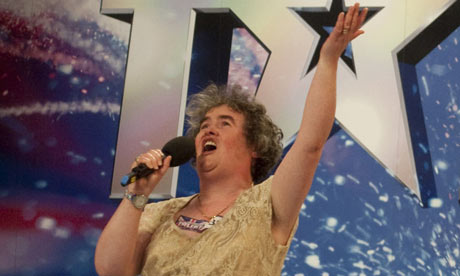Today's media contained a few stories that point to an interesting change in the relationship between audiences, institutions, and the expectations that both sides have for each other.
First up was a report on Radio 4's Today programme, featuring
Piers Morgan, one-time editor of the
Daily Mirror, and now a judge on Britain's Got Talent, and a French astronaut. The topic under discussion was whether or not the media encourages young people today to focus too much on celebrity itself as a career path, rather than more noble aims such as pushing at the frontiers o science.
Piers Morgan admitted that as his young sons grow older he feels more game keeper turned poacher, and now fears that the saturation of celebrity gossip flooding into our lives will be detrimental to the emotional and spiritual health of our youth. The astronaut, who was giving a talk about his life and work at a school in North London, explained the intrinsic joy and satisfaction that comes from a career devoted to the greater good of mankind.
It's a fascinating conversation, from which we can deduce that media institutions are sending out unbalanced messages, while seemingly feeling incapable of redressing the status quo.
You can read a transcript and listen to the extract
here.
Next up is a long article from Helen Boaden, the Director of BBC News. She's posted a keynote speech which she delivered at an e-democracy conference earlier in the week. In a nutshell, she argues that the rise of technological means for recording and distributing still and moving image content, coupled with a willingness of citizens to record events around them, and for broadcasters to take this information and process it, has led to an inevitable change in the way news outfits work.
She provides many fascinating facts: for example, the BBC now has a dedicated unit that ingests audience produced content, reviews it, and then distributes it around the mighty BBC news machine. On July 7th 2005, following the bombing of the London Underground, the BBC received more than a 1000 still and moving image submissions, 3000 texts and 20,000 emails. What is termed 'Citizen Journalism' is rapidly becoming part of the news agenda. As Boaden herself writes, ordinary people are finding a voice and realising their everyday lives could be newsworthy. For the broadcasters, in a cash-strapped 24-hour transmission world, this development offers audience interaction and cheap programming. To them, it's a win-win situation. Maybe it is too for the audiences who contribute, and get a buzz from seeing their footage online and on TV. However, Boaden conspicuously doesn't mention what the rest of us think. For that, you'll have to scroll down to read the mainly critical comments that follow. Of course, those who can be bothered to respond are often those who do not match the profile of the silent majority; so, using them as an accurate weather vane of public sentiment is an unproductive task.
Boaden concludes by celebrating the most successful blogs produced by BBC journalists.
Justin Webb the BBC's North America editor, with whom I had the pleasure of working in the mid-nineties at BBC Breakfast News, received two and a half million hits to his blog in October. That's phenomenal! It does point, however, to the fact that audiences may well prefer the considered opinions of an expert, rather than a 'have-a-go-Joe.'
Incidentally, Today ran a piece last week about the possible demise of the Blog. Since I'm feeling mischievous I'll link to it
here so that you can draw the conclusions that either (a) the BBC is contradicting itself or (b) one part of the BBC is wrong about the other. Go figure....
Finally, I read a
tragic story about an obsessed fan of American Idol judge Paula Abdul. The woman, called Paula Goodspeed, had killed herself near the star's home in Los Angeles. Miss Goodspeed had appeared on a series of American Idol in series five. Her singing was criticised by Simon Cowell and the other judges. It's a terrible tale and one that should remind us all that the media is a construct and a re-presentation of one mediated version of reality. It is not an absolute yardstick against which we should judge our own successes or failures.
We each need to live our own realities. And for that no TV, games console, magazine, or MP3 player is needed.







